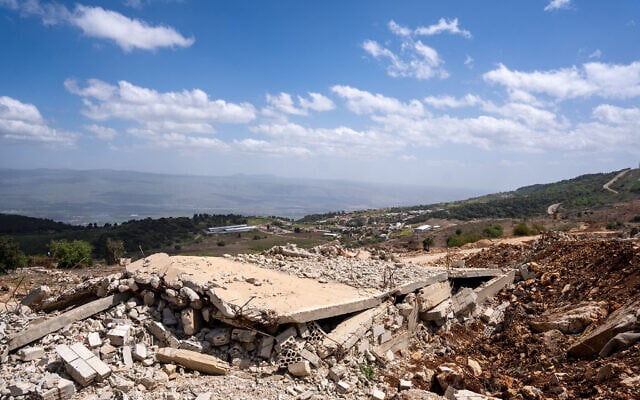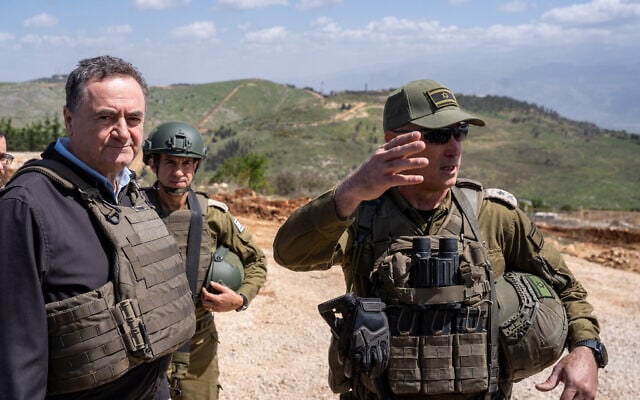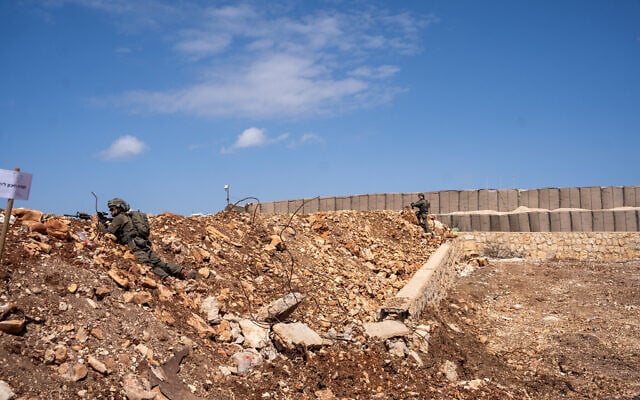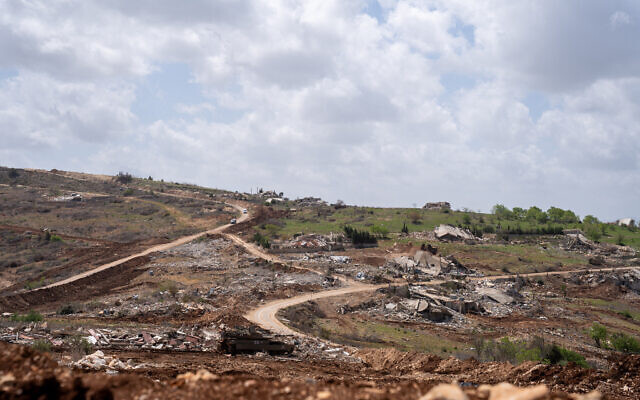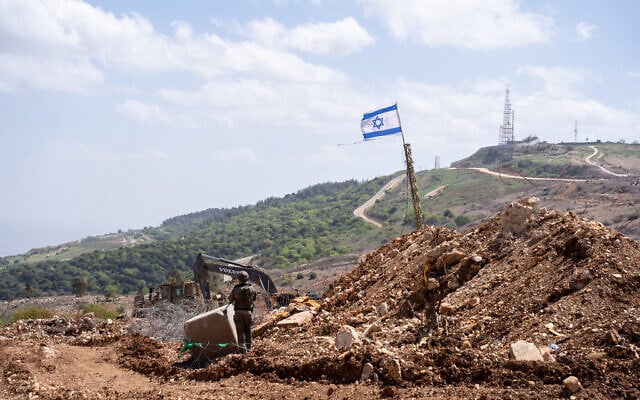


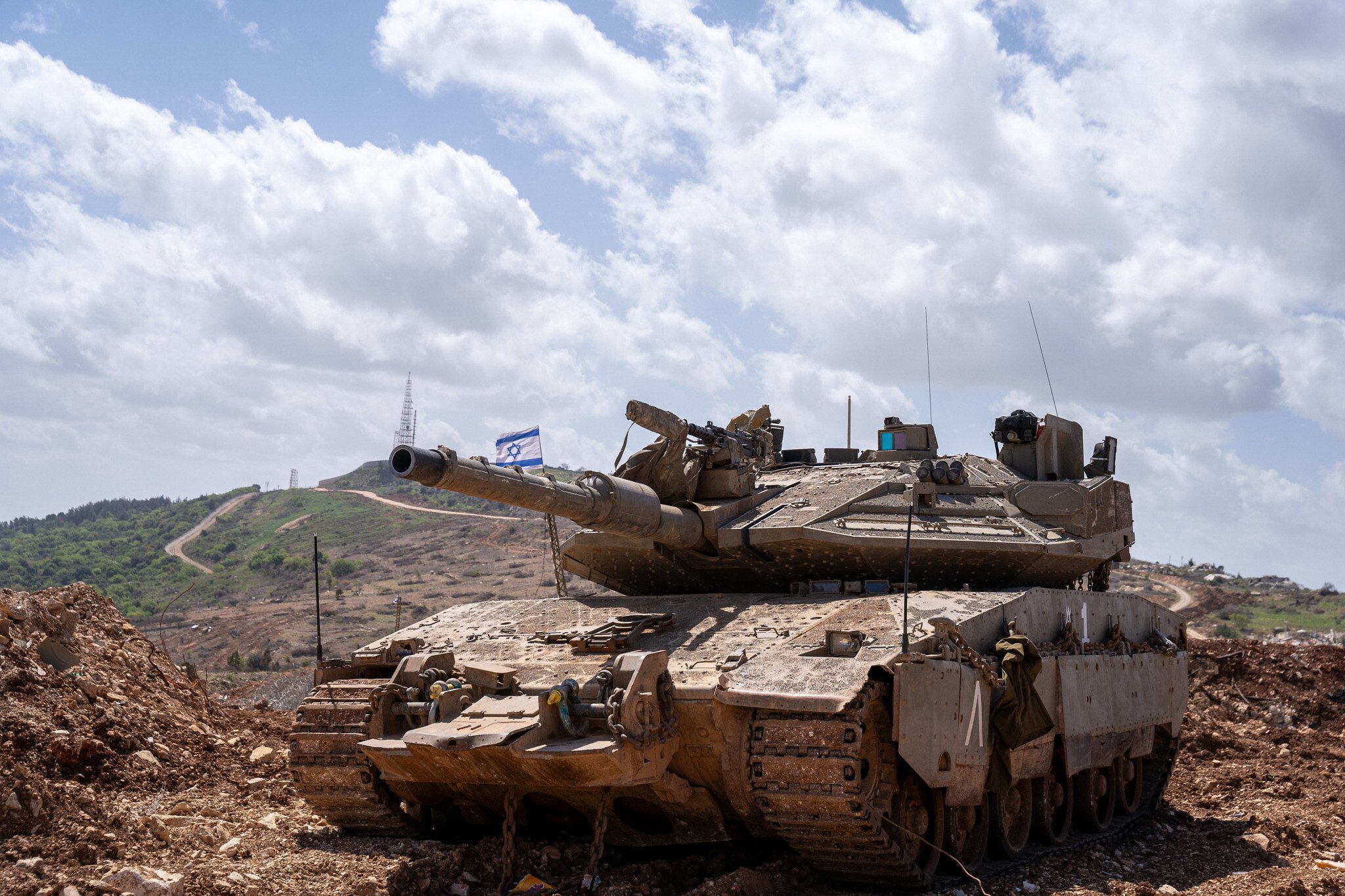
MARKABA, Lebanon — On the outskirts of a Lebanese border village where the Israel Defense Forces have established a military position, Defense Minister Israel Katz vowed on Wednesday that the army would remain there indefinitely.
The post on the edge of Markaba, overlooking the Israeli border community of Margaliot, is one of five strategic positions where the IDF has remained after a February deadline to withdraw from Lebanon, as part of an ongoing ceasefire that began in November.
“This is what victory looks like. The IDF is here, and the communities below are protected and active. And the villages on the other side are crushed. The villages that allowed Hezbollah [to carry out attacks], Hezbollah villages, with tunnels and missiles,” Katz said in a short interview with The Times of Israel, during a tour of the army post, officially called the “Margaliot Defender” post.
Margaliot is still mostly empty of residents, like many other northern communities. Residents evacuated amid Hezbollah’s daily attacks at the start of the war in October 2023, and many have yet to return.
Moshav Margaliot Chairman Eitan Davidi, who joined Wednesday’s tour, called on his community to return home. “This doesn’t just give us a sense of security; it gives us real security,” he said.
Davidi said that if the IDF intends to stay at the post indefinitely, as Katz has vowed, “then we have nothing to fear from and you can return. I call on the residents to return.”
Katz said: “I think us being here gives great confidence to the residents. Because in addition to the powerful enforcement [of the ceasefire deal] that we do in all the areas, it is important that the IDF is here, that there is a security strip with five strategic points to protect our communities and deter the other side.”
The November ceasefire brought relative calm after a year of hostilities, including two months of open war, between Israel and the Lebanese Hezbollah terror group.
Hezbollah started firing rockets, missiles and drones at Israeli communities and military posts near-daily on October 8, 2023, in support of fellow terror group Hamas, which had invaded Israel from the Gaza Strip a day earlier.
The IDF has continued to strike Lebanon since the ceasefire went into effect, targeting Hezbollah military sites, as well as operatives, that Israel says violated the agreement or posed an immediate threat.
Since the ceasefire began, the IDF said Wednesday, it had killed over 120 Hezbollah operatives.
Under the ceasefire, Hezbollah was obligated to pull its forces north of the Litani River, about 30 kilometers (20 miles) from the Israeli border, and dismantle any remaining military infrastructure in the country’s south, while the Lebanese army deployed to control the area.
Israel, in parallel, was obligated to withdraw its forces from southern Lebanon, though it retains the right to respond to immediate threats. Following an initial postponement, with US and Lebanese approval, of the deadline to withdraw, Israel pulled all its troops out of Lebanon in February with the exception of the five strategic posts along the border.
“We are here without a time limit. It doesn’t depend on time. It depends on the situation,” Katz said.
“In other words, as long as the threat exists, and Hezbollah does not withdraw beyond the Litani, does not disarm, and the Lebanese army does not enforce, we are here to provide protection,” he said.
Katz said that Israel had full support from the US to stay in the five positions and strike any threat. “It is our right to protect the communities, and we do not intend to change this,” he said.
As part of the ceasefire deal, the US chairs a committee made up of representatives from France, Israel, Lebanon and the UNIFIL observer force, through which the sides can lodge complaints of violations.
Israel has sent hundreds of ceasefire violation complaints to the committee, such as locations of Hezbollah weapon caches, which are then handled by the Lebanese army.
Military officials said that the Lebanese army has been improving with its activities to dismantle Hezbollah, but is still not working as fast and determined as it would like to see.
“The mechanism is very important. Led by the United States, it’s doing everything it can, it passes on instructions. In the end, it is [on] the Lebanese army, and the Lebanese army sometimes does and sometimes doesn’t,” Katz said. “That’s why I say, we are responsible for security, we are responsible for enforcement, and we are acting.”
On Friday, the IDF struck a Hezbollah facility in Beirut after two rockets were fired at northern Israel. Hezbollah denied having launched the rockets, and Israel also believes that another terror group was behind the attack, but directed its response against the Lebanese terror group regardless.
“I said that if there is no quiet in the Galilee, there will be no quiet in Beirut. If one building is demolished, if this continues, then many roofs in Dahiyeh will shake,” Katz warned. “We will not compromise; we will respond forcefully to any attempted attack and any attack.”
“This is what the residents [of the northern border communities] need to know. I think everyone here understands this and knows this. It gives them the confidence to return,” he added.

